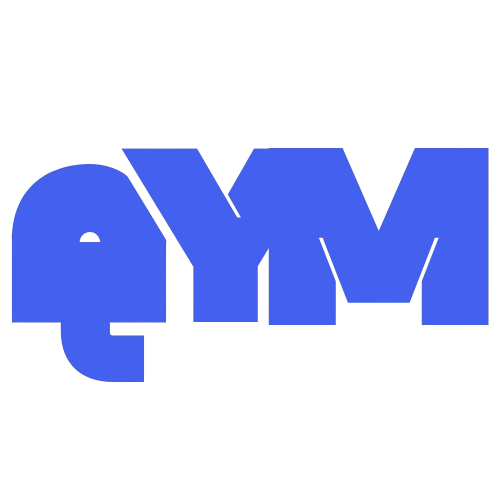Explore the top 10 remote education jobs you can start today, from teaching positions to administrative roles. Learn how to find, apply, and prepare for these flexible job opportunities in 2025.
Why Remote Education Jobs are Growing in Popularity
The rise of remote work is not a passing trend—it’s reshaping entire industries, including education. Over the past decade, online learning has steadily gained popularity, with an accelerating need for skilled professionals to teach and manage these platforms. Global events, like the COVID-19 pandemic, have highlighted the need for flexible learning environments, pushing schools, universities, and private institutions to invest in digital classrooms. As a result, remote education jobs are on the rise, offering professionals the flexibility to work from home or anywhere with an internet connection.
Also see; The Ultimate List of Remote Education Jobs for Every Skill Set
Also see; Remote Education Jobs: Opportunities for Teachers and Administrators
Key Drivers of Remote Education Job Growth
- Global Demand for Online Learning: With advancements in technology and increased internet access, people all around the world are seeking quality online education. This demand spans across K-12, college, and adult learning, creating opportunities for education professionals.
- Flexibility for Educators and Learners: Remote education jobs allow educators to work from home or other flexible locations, while students can attend classes from the comfort of their own homes or any remote location.
- Cost Efficiency: Educational institutions save money on infrastructure and physical space by offering online learning options, while instructors often experience less stress and work-life imbalance compared to traditional teaching environments.
The Skills Needed for Remote Education Jobs
To succeed in remote education roles, there are several core skills that professionals must possess. These skills ensure smooth operation of the teaching process while maintaining a strong connection with students.
1. Technical Skills
Remote education jobs often rely heavily on technology, so familiarity with the tools and platforms used in online teaching is essential. This includes proficiency in Learning Management Systems (LMS) like Canvas, Blackboard, and Moodle, as well as video conferencing tools such as Zoom or Google Meet. Instructors may also need to create content using multimedia software or other digital tools, so technical proficiency is a must.
2. Communication Skills
Being able to communicate effectively in a remote environment is critical. Unlike traditional classrooms, online learning requires educators to clearly explain concepts through digital channels—whether in written or spoken form. Strong verbal communication, active listening, and the ability to provide constructive feedback are vital.
3. Time Management & Self-Discipline
One of the greatest benefits of remote education jobs is the flexibility they offer, but that can also lead to procrastination or a lack of focus if you don’t manage your time well. Being able to juggle multiple tasks—like preparing lesson plans, responding to students’ questions, and grading assignments—is essential for remote educators.
4. Adaptability
The world of remote education is constantly evolving. New technologies emerge regularly, and educators must adapt quickly to keep up. Flexibility in adapting lesson plans and teaching strategies to fit online formats is also important.
Top 10 Remote Education Jobs You Can Start Today
Here are 10 remote education jobs that are currently in demand. Each role offers its own unique set of responsibilities and requirements.
1. Online K-12 Teacher
What the Role Entails:
As an online K-12 teacher, you’ll be responsible for teaching students from kindergarten through high school, often in a specialized subject such as math, English, or science. Online K-12 teachers must design lesson plans, conduct virtual classes, and manage student interactions via video conferencing platforms.
Skills Required:
- Subject expertise
- Experience with online teaching platforms
- Classroom management in a virtual environment
Platforms to Explore:
- VIPKid
- Teach Away
- OutSchool
2. Online College Instructor
What the Role Entails:
Online college instructors teach courses in a variety of disciplines. The role often involves creating and delivering lectures, grading assignments, and engaging with students in an online forum. This position generally requires a master’s degree or higher in the subject being taught.
Skills Required:
- Advanced degree in the subject area
- Teaching experience in higher education
- Familiarity with online teaching platforms
Platforms to Explore:
- Coursera
- edX
- Universities offering remote adjunct positions
3. Remote Special Education Teacher
What the Role Entails:
Special education teachers work with students who have learning disabilities or other special needs. In a remote setting, this could involve creating customized lesson plans, offering additional support during lessons, and using assistive technologies to ensure every student’s needs are met.
Skills Required:
- Special education certification
- Patience and creativity
- Experience in adapting lessons for diverse learners
Platforms to Explore:
- K12
- Connections Academy
- Independent school districts
4. Educational Consultant
What the Role Entails:
Educational consultants advise schools or educational organizations on curriculum development, teaching strategies, and technology integration. They can work with K-12 schools or higher education institutions to help them improve their teaching methods and systems.
Skills Required:
- Expertise in educational best practices
- Problem-solving and communication skills
- Consulting experience in education
Platforms to Explore:
- Independent consulting work via platforms like Upwork
- Education-focused consulting firms
5. Instructional Designer
What the Role Entails:
Instructional designers are responsible for creating educational content and courses for online learners. This could include writing lesson plans, developing video materials, and ensuring that the content is engaging and aligned with learning objectives.
Skills Required:
- Knowledge of instructional design principles
- Experience with content creation tools
- Ability to work with multimedia formats
Platforms to Explore:
- LinkedIn job boards
- Glassdoor
- Freelance instructional design opportunities
6. Online Tutor
What the Role Entails:
Online tutors provide one-on-one support to students in a variety of subjects, from high school mathematics to language learning. These roles often allow for a flexible schedule and focus on specific student needs.
Skills Required:
- Subject matter expertise
- Ability to explain complex concepts in a simple way
- Experience with tutoring platforms
Platforms to Explore:
- Chegg Tutors
- Wyzant
- Tutor.com
7. Virtual Test Proctor
What the Role Entails:
Virtual test proctors monitor students during online exams to ensure academic integrity. This can involve verifying student identity, overseeing the testing process, and ensuring that there is no cheating or inappropriate behavior during the exam.
Skills Required:
- Attention to detail
- Excellent communication skills
- Familiarity with online testing tools
Platforms to Explore:
- Pearson
- ProctorU
- Universities offering online courses
8. Remote Curriculum Developer
What the Role Entails:
Curriculum developers design course materials and lesson plans for teachers and schools, particularly for online learning. This includes creating learning objectives, preparing assessments, and developing instructional resources.
Skills Required:
- Strong educational background
- Creativity and organization
- Familiarity with online teaching tools
Platforms to Explore:
- Education-focused job boards
- EdSurge
9. Remote Education Coordinator
What the Role Entails:
An education coordinator manages online programs, handles student and teacher communications, and ensures that educational activities run smoothly. This role can be administrative, but it requires an in-depth understanding of the curriculum and teaching practices.
Skills Required:
- Strong organizational skills
- Excellent communication
- Time management and scheduling
Platforms to Explore:
- Remote job boards like Indeed
- University positions
10. Remote Education Tech Support Specialist
What the Role Entails:
Tech support specialists assist educators and students with technical issues related to online learning platforms. This role may involve troubleshooting issues, providing solutions for students and teachers, and offering tech-related training.
Skills Required:
- Technical knowledge of educational tools
- Problem-solving skills
- Excellent communication
Platforms to Explore:
- EdTech companies like Canvas or Blackboard
- Remote tech support job boards

How to Find and Apply for Remote Education Jobs
Finding and applying for remote education jobs can be an exciting process, but it requires some strategic effort to navigate the job market. Here are some effective ways to discover these opportunities and stand out in the application process.
1. Use Job Search Websites
Several job platforms specialize in remote opportunities, including those for education professionals. Some of the most popular websites for finding remote education jobs are:
- Indeed: A well-known job portal with many remote education roles available.
- FlexJobs: Focuses on remote, part-time, and flexible jobs, including those in the education sector.
- LinkedIn: Not only is LinkedIn a professional networking platform, but it also has a robust job search feature, allowing you to filter for remote education roles.
- Glassdoor: Offers job listings and insights into company culture, including remote work options in education.
- We Work Remotely: A site dedicated to remote job opportunities across various sectors, including education.
2. Check Educational Institutions’ Career Pages
Many universities, online schools, and educational organizations post remote teaching and administrative job openings directly on their career websites. Some examples include:
- University Career Pages: Look for adjunct teaching positions or administrative roles.
- K-12 Schools: Some public and private schools post remote teaching jobs on their websites.
3. Explore Freelance Platforms
Freelance platforms provide access to short-term remote education roles, from tutoring to course development. Popular platforms include:
- Upwork: A marketplace for freelancers, including remote education roles like tutoring and curriculum development.
- Fiverr: A platform where you can list your services and gain clients for various educational jobs.
- Guru: Offers freelance positions across multiple fields, including online education and tutoring.
4. Join Online Education Communities
Networking within online education communities can help you discover job openings and gain valuable advice. Some communities to consider include:
- Reddit (r/OnlineTeaching): A great place to share experiences, get advice, and find job postings in the remote education sector.
- Facebook Groups: Join groups specifically for online educators or remote work opportunities.
- EdTech Communities: Engage with groups focused on educational technology, where job opportunities often arise.
How to Prepare for a Remote Education Job
Landing a remote education job is just the beginning. To ensure success, you need to be fully prepared for the demands of remote work. Here’s how to set yourself up for success:
1. Set Up Your Home Office
Having a dedicated space for work can significantly boost productivity and help you maintain work-life balance. Ensure your home office is equipped with:
- A reliable computer and internet connection
- A comfortable chair and desk
- A webcam and microphone for virtual meetings
- Proper lighting and a quiet environment
2. Master Remote Teaching Tools
As a remote educator, you’ll need to be proficient in various teaching tools. Some tools you may need to learn include:
- LMS (Learning Management Systems) like Moodle, Canvas, or Blackboard.
- Video conferencing tools like Zoom, Google Meet, or Microsoft Teams.
- Interactive tools such as Kahoot! and Padlet for engaging students.
- Content creation tools like Canva or Camtasia for making educational materials.
3. Brush Up on Time Management Skills
Remote education jobs require excellent time management. Without a structured environment, it’s easy to lose track of time. Develop routines, prioritize tasks, and use tools like Trello or Asana to keep track of your responsibilities.
4. Engage with Your Students
Maintaining a strong connection with students in a remote setting can be challenging. To foster engagement, consider:
- Hosting regular office hours
- Creating discussion boards for students to interact
- Using interactive activities, like polls and quizzes, to keep the learning experience lively
- Offering personalized feedback to each student
Challenges of Remote Education Jobs and How to Overcome Them
Remote education jobs, while flexible and rewarding, come with their own set of challenges. Here’s how to overcome them:
1. Isolation and Loneliness
Many remote educators face isolation due to the lack of in-person interactions with colleagues and students. To combat this:
- Schedule regular virtual meetings with peers
- Join online communities and networks to stay connected with others in your field
- Create opportunities for students to collaborate with each other through group projects or forums
2. Technical Issues
Technical problems such as connectivity issues, software glitches, or platform malfunctions are common in remote work. Here’s how to handle them:
- Always test your equipment and software before classes begin
- Have a backup plan (like a secondary internet connection or device) in case of emergencies
- Keep a list of support contacts for the tools you use
3. Work-Life Balance
Remote work can blur the boundaries between work and personal life. Set boundaries by:
- Creating a designated work schedule
- Setting clear expectations with family members or housemates about your working hours
- Taking regular breaks and stepping away from your workspace to refresh
Conclusion
The remote education field offers a vast array of opportunities for individuals with diverse skill sets. Whether you’re an experienced teacher, an instructional designer, or someone looking to get started in the world of online education, there are remote roles that can fit your expertise.
By leveraging the skills and tools mentioned above and using job search strategies to your advantage, you can land one of the top remote education jobs today. While remote education jobs come with unique challenges, the flexibility, rewards, and opportunity to positively impact students’ lives make it a worthwhile career path.



